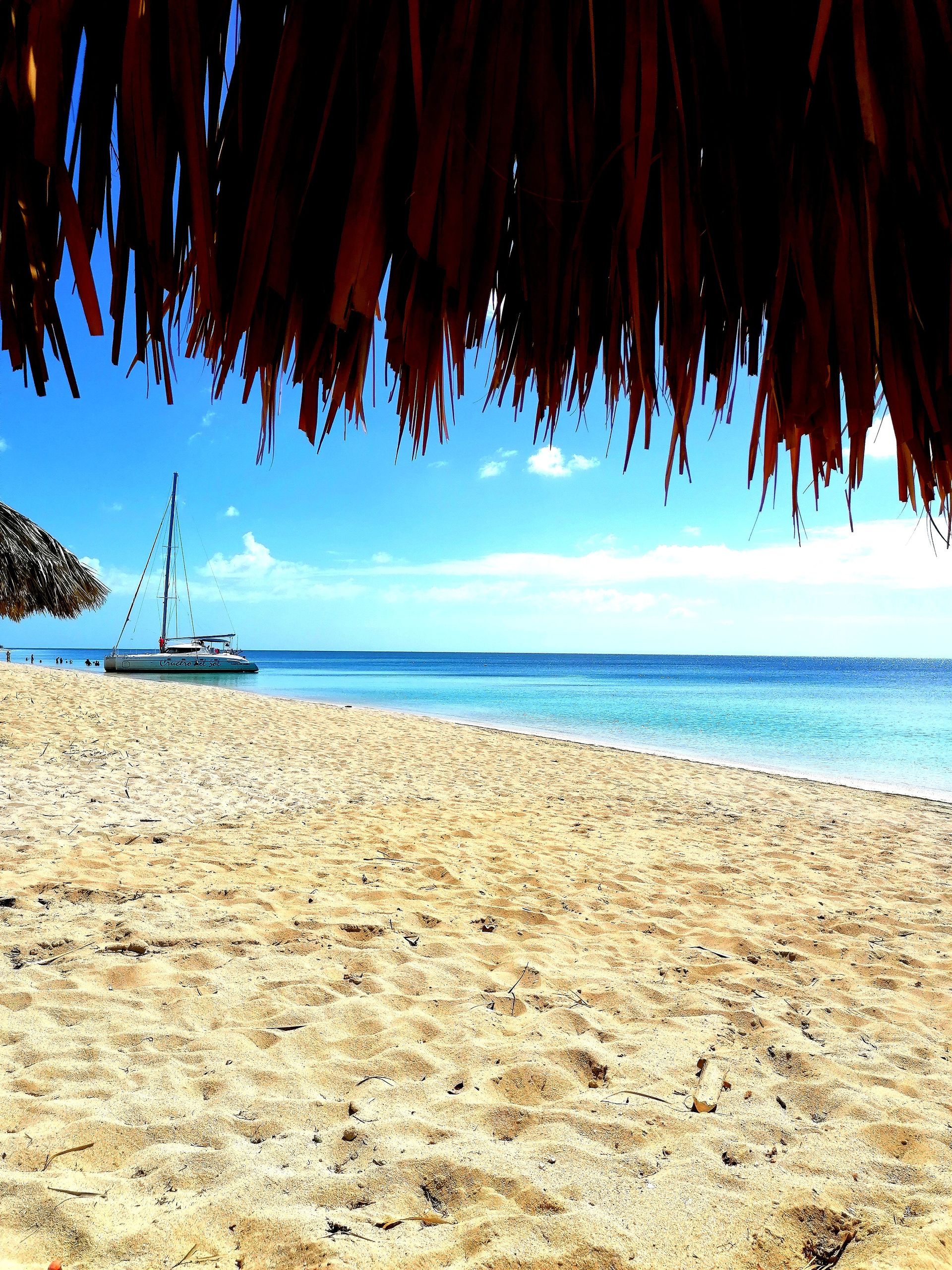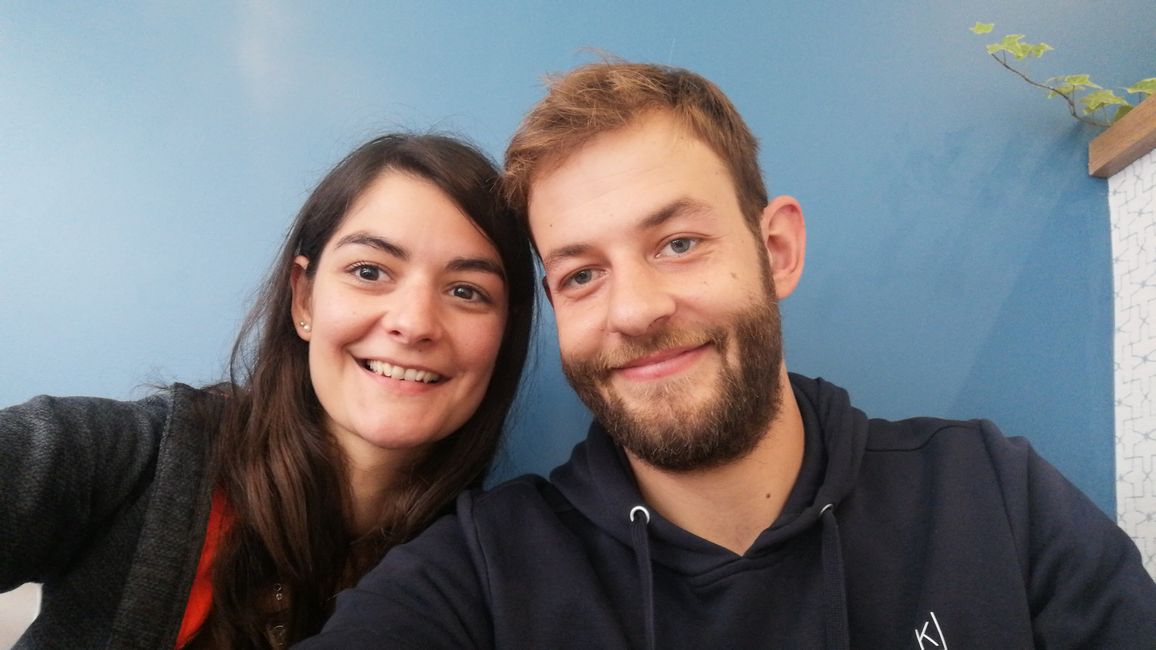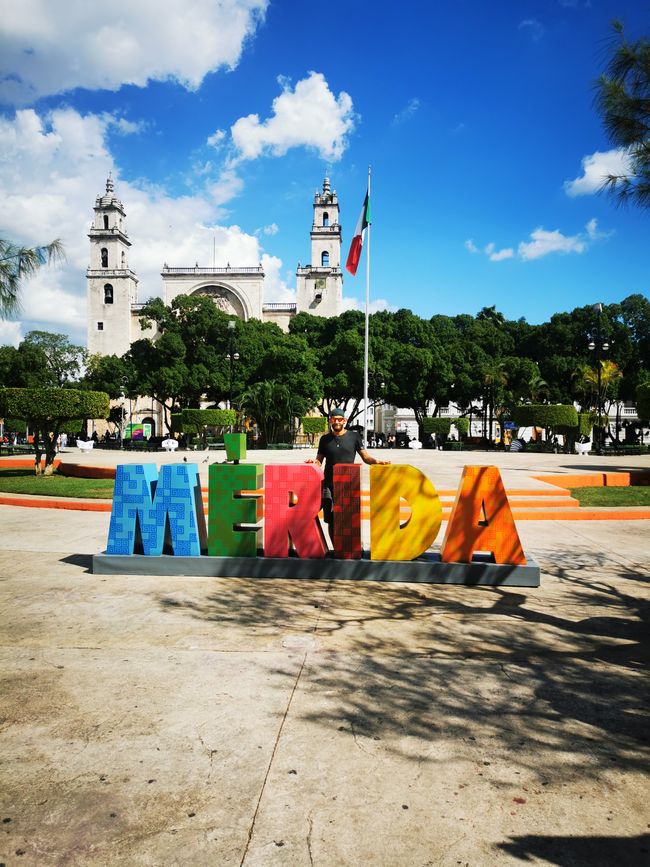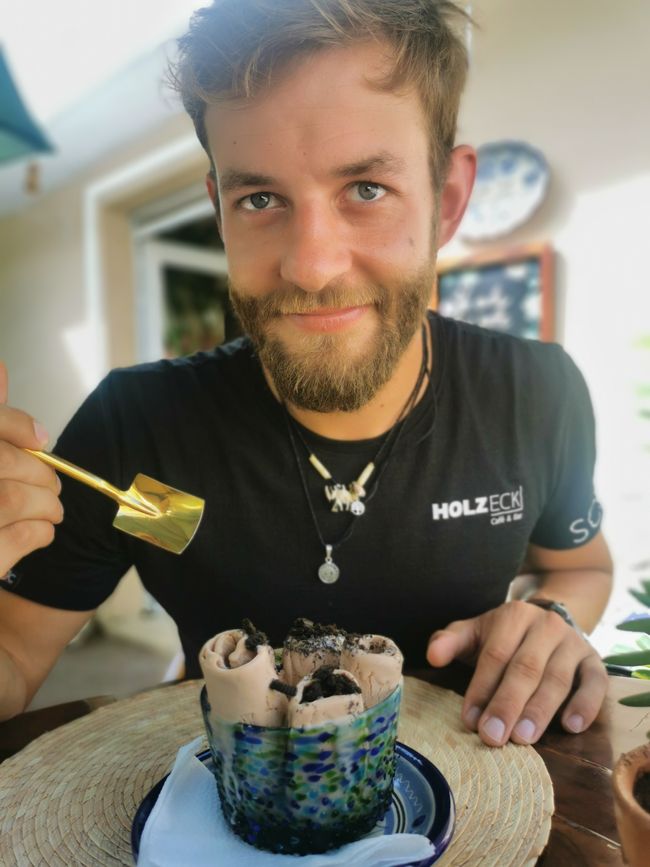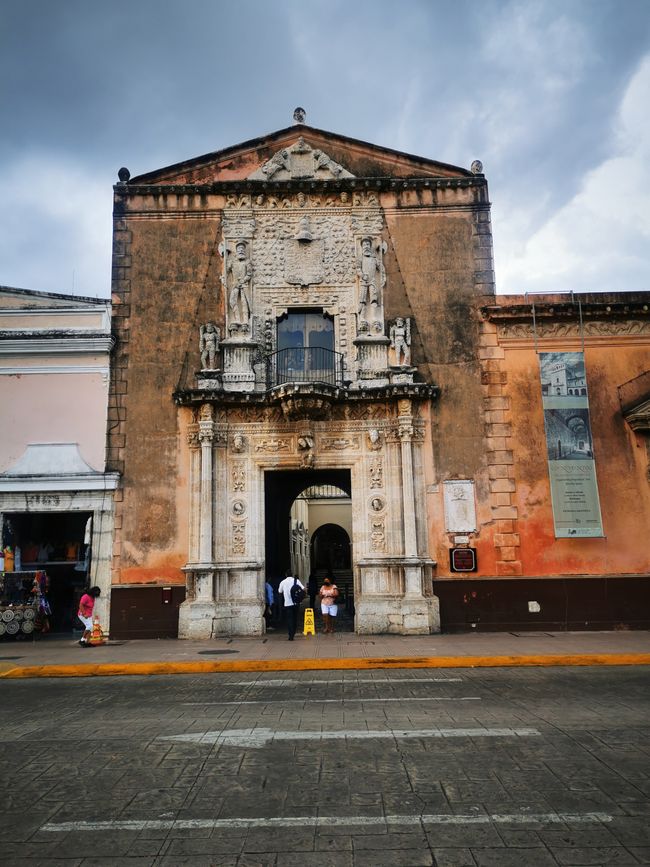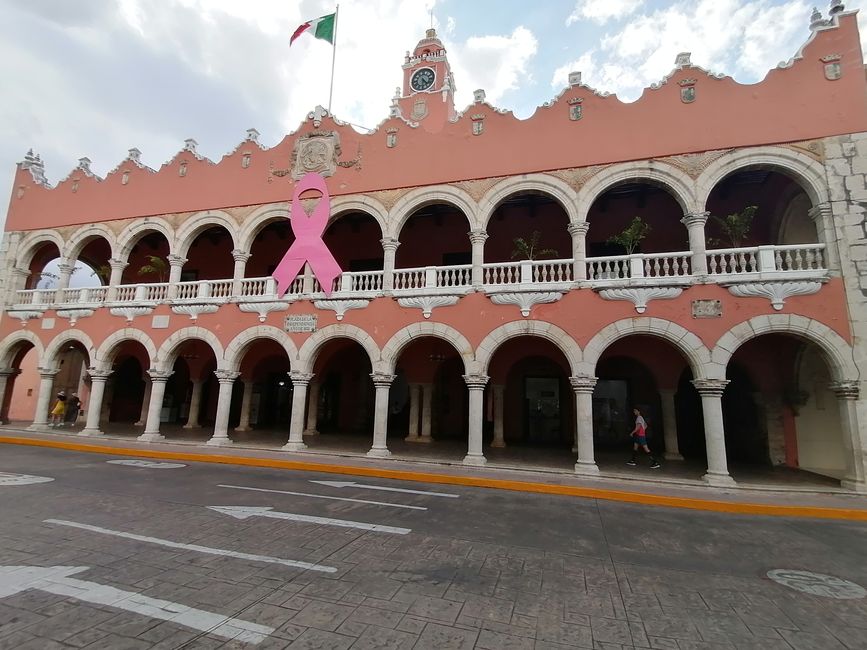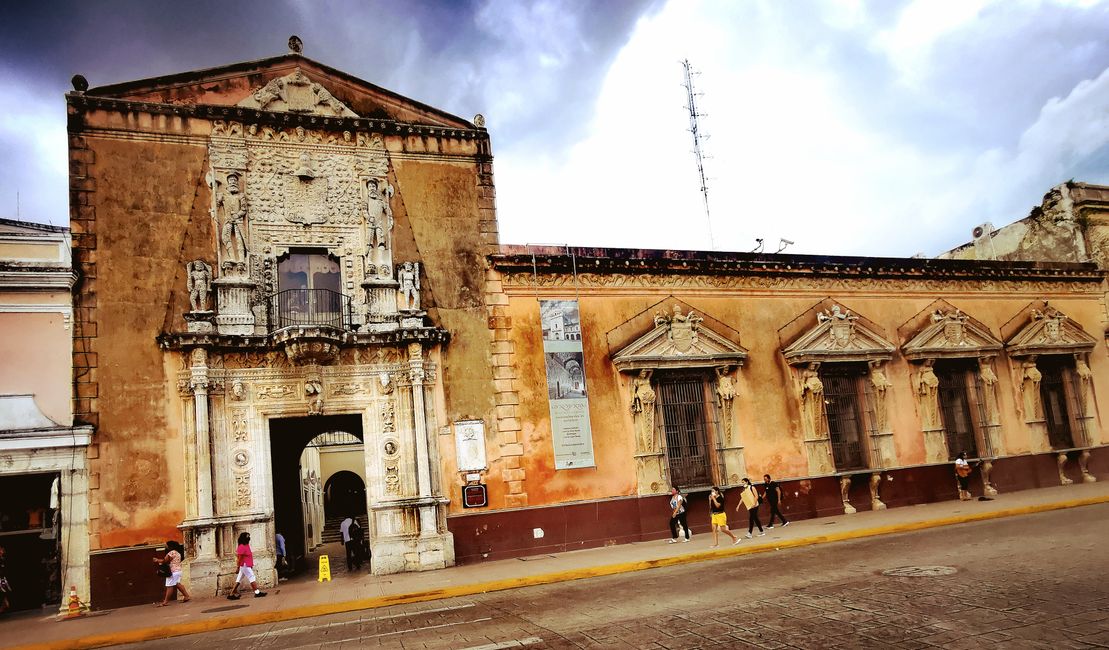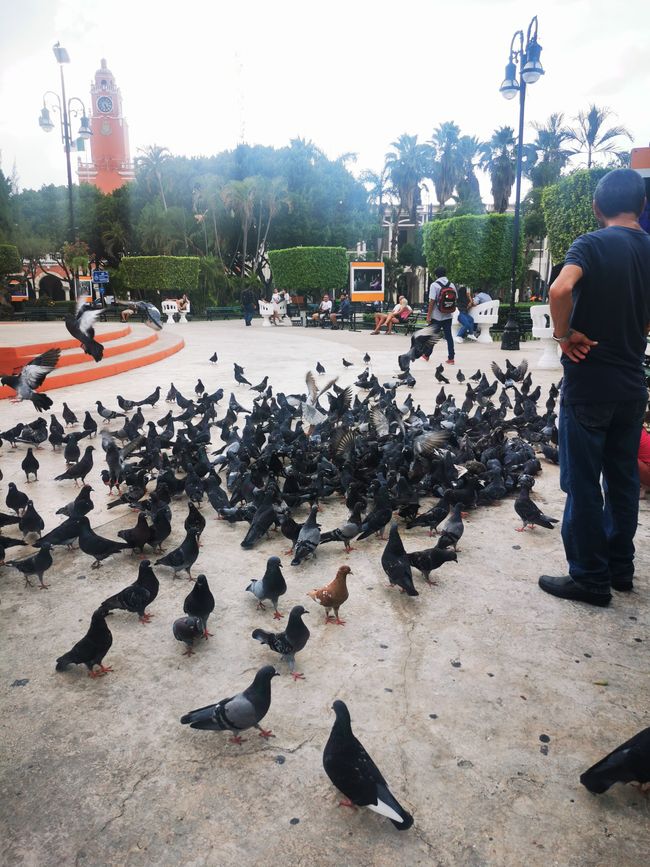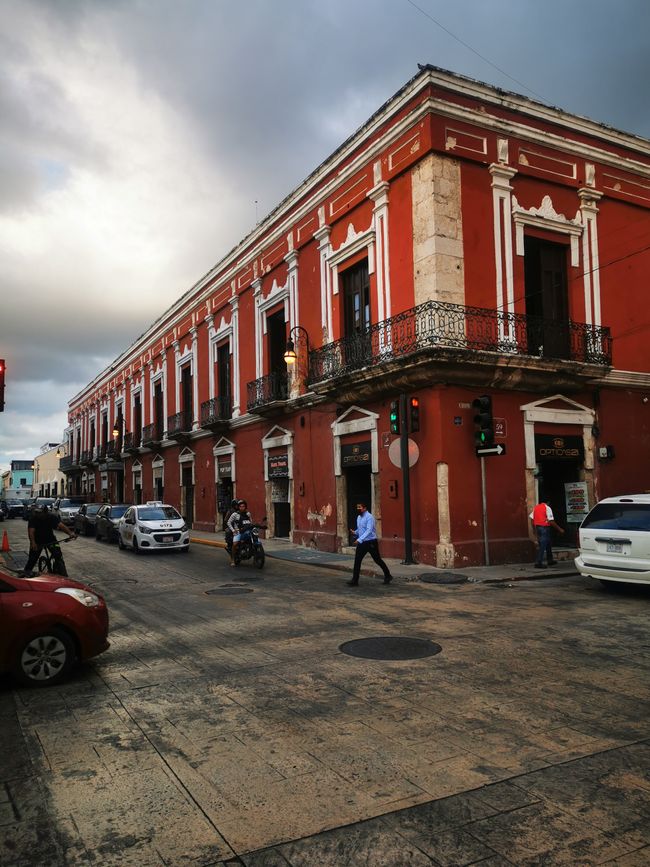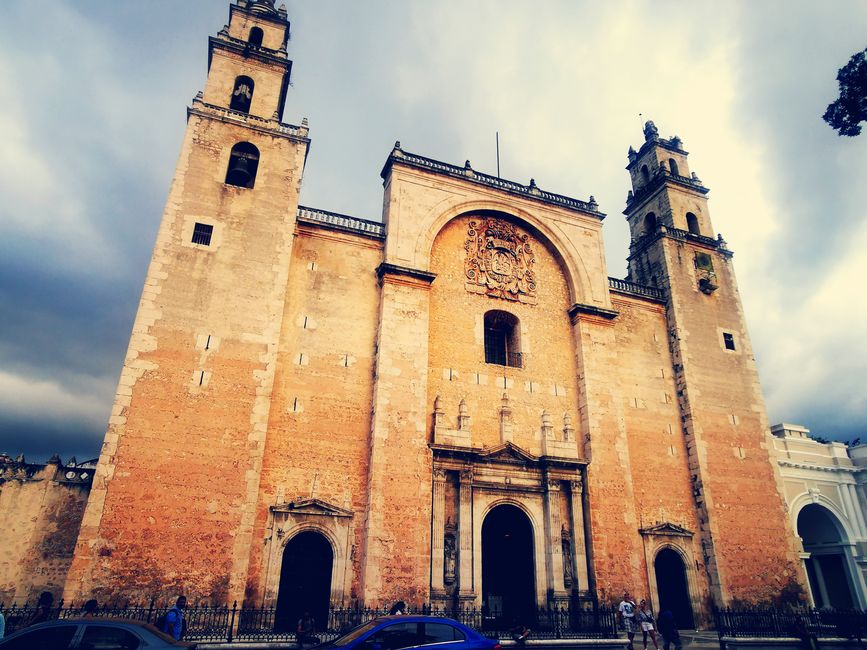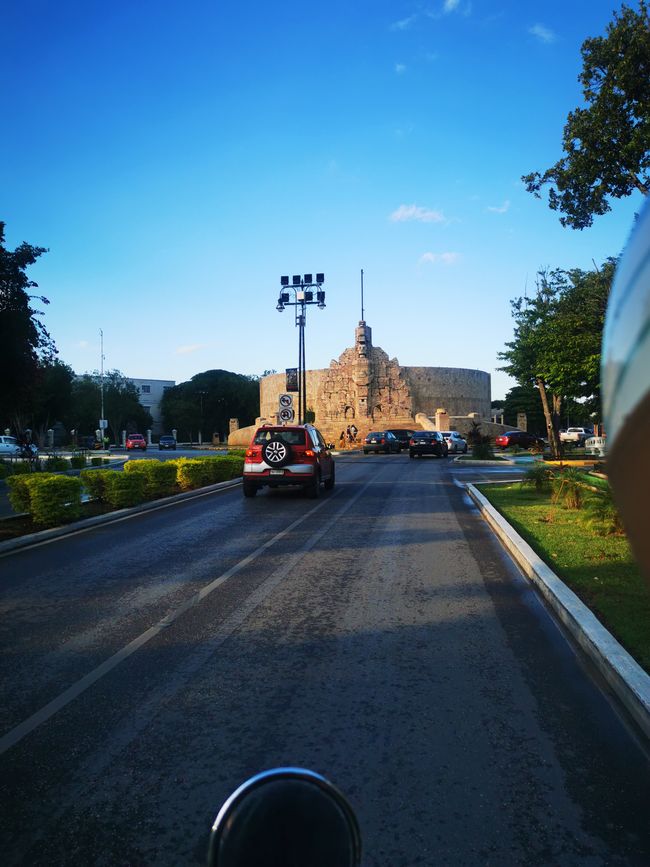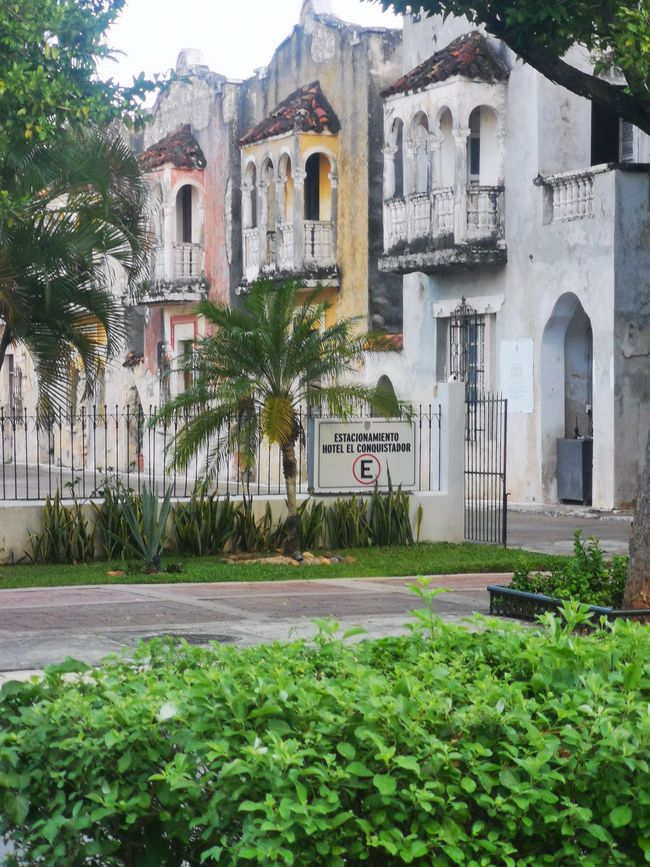Day 34, 35 and 36 - Merida - The gateway to the world of the Maya - The capital of Yucatan
已發表: 18.11.2022
訂閱時事通訊
Day 34 - Tuesday, 25.10.2022:
Goodbye, goodbye Valladolid and Hello Merida
Today was another travel day, we had a drive to Merida ahead of us. But before that, we wanted to treat ourselves to a hearty breakfast in Valladolid. We found a small, nice place where we got everything from avocado toast to chocolate ice cream. Happy and with full stomachs, we returned to our accommodation, packed our things, and headed to the bus station.
The bus was only half full, comfortable but completely chilled.
After about 3 hours of travel, we arrived at our new accommodation. A bungalow on a rooftop terrace, with a huge bathroom. We enjoyed the afternoon in our accommodation and made ourselves a delicious dinner in the well-equipped communal kitchen. Of course, we also had a beer on our terrace, but then the sandman called us relatively quickly.
Day 35 - Wednesday, 26.10.2022:
Merida - The Gateway to the World of the Maya - The Capital of Yucatan
The day started again with a delicious breakfast and a nice conversation with one of our roommates. Brenda was a Mexican from Playa del Carmen. She spoke English very well and told us a lot about the local culture, politics, and how people learned to deal with all the problems. It was very refreshing to hear such things from the perspective of a local. After that, it was already almost noon, and we went on an exploration tour of Merida. We visited the Plaza Grande, which, like in almost all Mexican cities, was the center of the metropolis. Here, the oldest and most famous buildings of Merida are located. We also went in search of a scooter rental because we had errands planned for the next day. We went home on the blue Vespa.
Day 36 - Thursday, 27.10.2022:
Consulado Cubano and a Package Shipping ála stupido
After having an important conversation about Cuba with Anna's friend Nadine yesterday, today it was time to get the visa. So we went directly to the Cuban Embassy after breakfast. Here, we immediately felt what it means to do administrative tasks in Cuba. The indifference of the Cubans in their work is unparalleled, and it can sometimes take a few hours to wait for a small piece of information, which in Western countries would be on the table within minutes. But not to portray the locals of the Pacific island in the wrong light, it must also be mentioned that the monthly salary earned by the common people is probably the decisive reason for this. The daily wage of an average Cuban is just under 200 pesos, which is equivalent to about 1.30 euros at the current exchange rate. But we will address the problems of the island state elsewhere.
After some communication difficulties, the security guard at the embassy helped us the most and explained to us with gestures and footwork what steps we need to take next. 4 hours and a few fewer nerve cells later, we finally held our visa for the next destination in our hands.
Slightly irritated, we continued on our Vespa to the 'Paqueteria,' a Mexican package shipping service. Here, again in Spanish, which we have now learned to understand in the simplest terms, it was very plausibly explained to us that the cheapest way to send our package home was around 150€. In our despair, we accepted the offer. Afterward, Manfred had to blow off some steam for a few hours because the price was far too high for him, but he didn't see any alternatives.
Now our next task was to get cash in the form of euros or dollars since getting money in Cuba is not as easy as we thought. With reluctance, we accepted the additional costs of the eternal money exchange and withdrew our budget for Cuba from about six different ATMs in Mexican pesos. We spent the rest of the day talking about our upcoming trip since we both didn't know exactly what to expect in Cuba.
訂閱時事通訊
回答
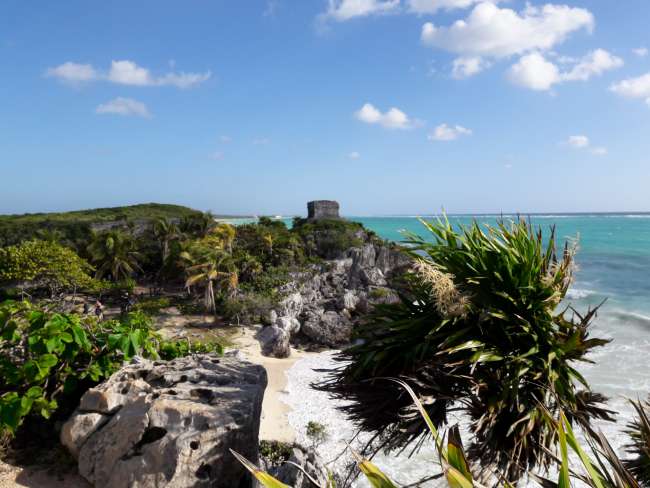
旅遊報告墨西哥
